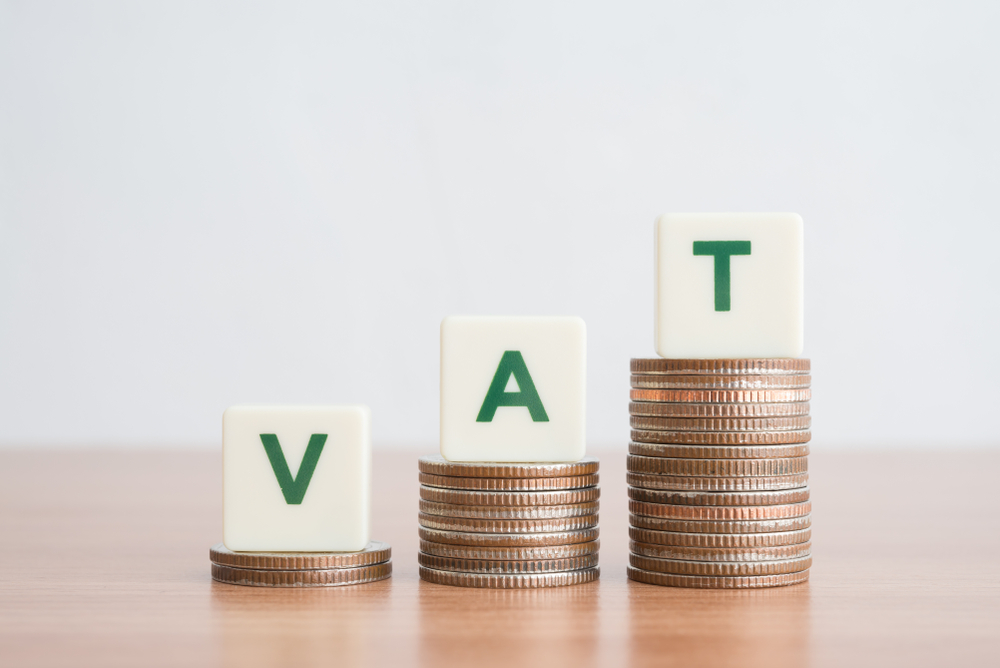Despite opinions to the contrary, Value Added Tax (VAT) is not a black-and-white tax issue. As with most taxes, there are grey areas to consider when making the best decision for your business.
What is the VAT threshold?
Most people are aware that when your turnover reaches the threshold of £85,000, VAT registration is compulsory. The VATable turnover (including zero-rated) of any 12 month period is counted, not just your accounting year. Other items are included as turnover, for instance receiving services which are treated as a ‘self-supply’, such as services from many EU based suppliers (at least until 31 December), and also, once enacted, the receipt of services under the Construction Industry Scheme from March 2021.
If you fail to register your business within 30 days you may be fined. Your accounting software can help you to keep track of your turnover on a rolling monthly basis to alert you when you’re approaching the threshold. You are also required to register if your supplies in the next 30 days alone are expected to exceed the threshold; for example, if you have recently won a large order from a big customer for £100,000, you will need to register for VAT and charge it on that order.
What are the advantages of voluntary VAT registration?
There are some benefits to registering your business before you reach the £85,000 turnover threshold but this is a big decision which impacts your business health, so consider the pros and cons carefully.
Some businesses register for VAT to show that they are in a position to grow and to increase their standing in the marketplace, appearing larger than they are. Registering for VAT early shows that you are ready to expand and you don’t need to worry about missing the threshold.
Once registered, you can reclaim the VAT you are charged by others (your input tax) but you also have to charge VAT on your goods or services (your output tax). If your input tax exceeds your output tax you can reclaim the difference from HMRC.
You can generally reclaim VAT on goods you bought for business purposes up to four years before you registered if you still have them on the date of registration. The VAT on services for your business purchased six months prior to registration can also be reclaimed.
And what are the disadvantages of registering for VAT?
For some businesses, the downsides of VAT registration outweigh the benefits. If your output tax is greater than your input tax, you will have to pay the difference to HMRC. For businesses that can’t accurately predict purchases and sales from period to period, this can cause cash flow and planning difficulties.
Filing a quarterly VAT return increases the admin and paperwork burden on your business but good accounting software can help to integrate VAT systems into your bookkeeping and reporting. When VAT registered, you must comply with the ‘Making Tax Digital’ record-keeping requirements of keeping your records on HMRC-approved software. Potentially most significantly, if your customers are not VAT registered (private households, charities and non-VAT registered businesses), then you are faced with either trying to be 20% more expensive (although you may pass on some of your input VAT savings), losing 1/6th of your sales to VAT, or a combination of the two. If your customers are able to reclaim VAT, then they generally will not mind paying it.
Which VAT scheme is right for me?
Different VAT schemes suit different businesses so seek advice and carefully and consider whether a Flat Rate Scheme, Cash Accounting Scheme or Annual Accounting Scheme is the best option.
Can I deregister from VAT?
Depending on the circumstances, deregistering is either compulsory or voluntary. You must deregister if your business has ceased trading and will make no further taxable sales or if it becomes part of a VAT group or is sold (but the new owner may be able to take on the registration number).
You can request deregistration if your turnover or taxable sales will not exceed the threshold of £83,000 in the next 12 months. It is easier to deregister if you previously registered voluntarily and never reached the threshold but if your turnover exceeded the threshold before, you may find it more difficult.
It is possible to claim VAT relief on some costs incurred after you deregister such as legal or accountancy fees, as long as the services were provided in relation to the period you were VAT registered. You may also need to account for VAT on assets still on hand at de-registration, such as stock and fixed assets if the VAT on these is over £1,000.
VAT registration or deregistration is a big business decision to make and the prospect of a large bill, potential fines and increased paperwork puts many people off. With our vast experience of VAT registration, filing returns and being the agent for many of our clients, CRM takes away the worries around the complexity of VAT. Get in touch with the experts on 01865 379272.

